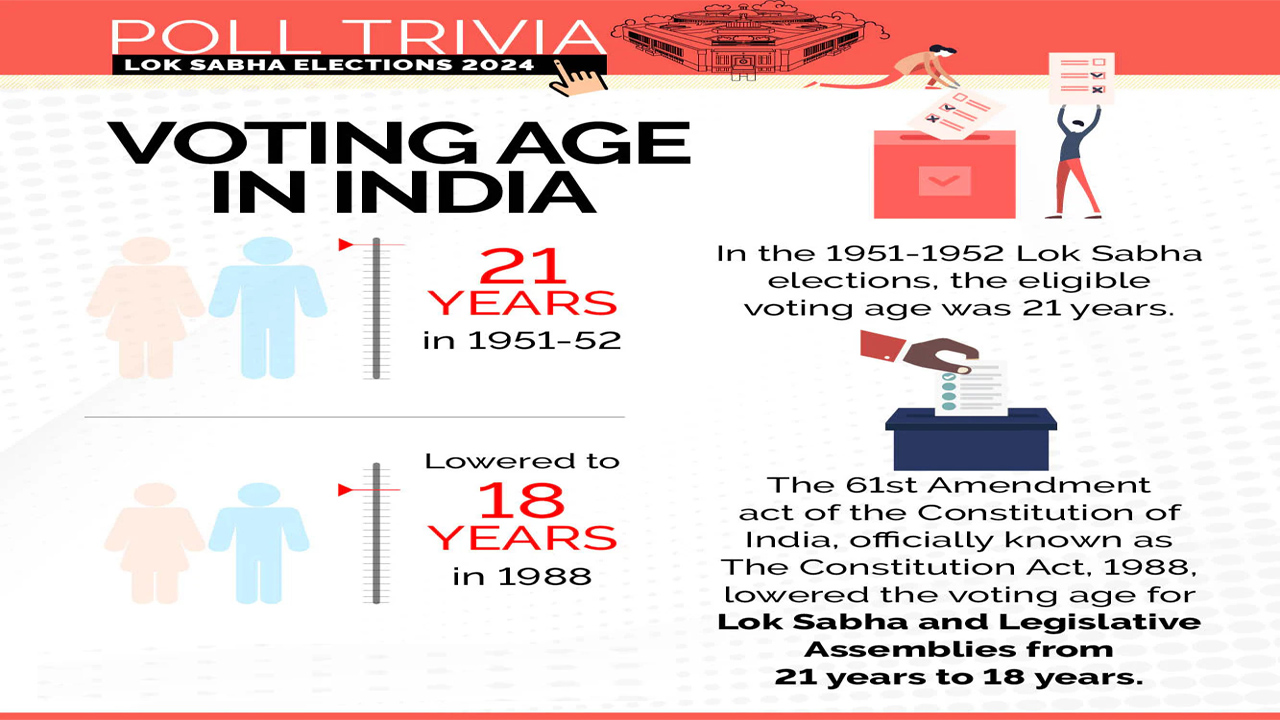The Lok Sabha elections 2024 witnessed an increase in the political parties participation, with candidates from 41 parties being elected, compared to 36 in 2019 general election
 KRC TIMES Desk
KRC TIMES Desk

Dheeraj Jandial
The 18th Lok Sabha elections concluded successfully on June 01, 2024 and the results declared on June 04, 2024. The mammoth exercise was proficiently carried out by the Election Commission of India, which constitutional body was appreciated by the Prime Minister Narendra Damodardas Modi in the evening of June 04 while addressing party workers amid jubilations of emerging as the single largest party (although falling short of the simple majority) at the BJP Headquarters in New Delhi.
He also expressed his gratitude to all the stakeholders including polling personnel, law enforcement agencies, security and paramilitary forces, volunteers, Indian Railways and Airforce, amongst many who made this gigantic exercise a grand success.
A CLOSSAL TASK
Spreading across 7 phases, the elections-2024 had 97 crore registered voters, 10.5 lakh polling stations, 1.5 crore polling officials and security staff, 55 lakh EVMs, and 4 lacs vehicles.
Voters from all sections of society and age groups including women, youngsters, PVTGs, third gender, PwDs and senior citizens participated enthusiastically in the Chunav Ka Parv. The participation of women in these elections have also seen significant strides with over 85 lakh first-time female voters expected to participate in this election..
Home-voting facility, introduced for the first time in the history of Lok Sabha elections on pan-India basis saw democracy being taken to the doorsteps of those who are encumbered by physical limitations. Many voters aged above 85 years and PwD with 40% benchmark disability opted to vote from the comfort of their homes.
In its commitment for inclusive rolls, 82 lakh PwDs and 2.2 lacs 100+ aged were specifically encocouraged for casting of their ballot. Over 48 thousand third-gender voters too were registered, refelecting growth in categories of voters.
UT of Jammu and Kashmir shone bright with a voter turnout of 58.58% which is highest in the last 35 years. The Kashmir valley registered a voter turnout of 51.05%, a massive jump of over 30 points from the previous elections. The feat is testament to the credibility and fairness of the election process and a ringing endorsement of the trust reposed by the voters in the power of the ballot.

TOO MUCH CHOICE- Candidates galore
Over 8000 candidates were in fray in the Lok Sabha 2024 elections of which 16 per cent have been fielded by national parties, 6 per cent by State parties, while 47 per cent of candidates were independents, a report by PRS said. This is the highest number of candidates since 1996, when a record 13,952 candidates were in fray. In 2019 polls, there were 8039 candidates who participated in general elections.
What deserves attention here that in the very first general election in India, only 1,874 candidates were on there on ballot papers. Thus, there has been an over four-times rise in the number of candidates contesting the polls from 1952 to 2019. Accordingly, the average number of candidates per constituency has also jumped from 4.67 to 14.8. resulting in vast choice for voters
INCREASED PARTY PARTICIPATION
The Lok Sabha elections 2024 witnessed an increase in the political parties participation, with candidates from 41 parties being elected, compared to 36 in 2019 general election.
According to analysis by think tank PRS, National Parties secured 346 seats, accounting for 64 of the total while the State recognized parties won 179 seats representing 33 per cent.
A MATTER OF DAYS- The long and short of it
Spreading across 7 phases, the voting span of 44 days for 2024 Lok Sabha polls is the second longest in the India’s history after 1951 polls that was spread over 4 months. The shortest voting window was in 1980, which lasted just for 04 days.
SAVE YOUR DEPOSIT- The cost of a bad loss
Any candidate contesting the election will have to secure at least one-sixth valid votes in his or her constituency to reclaim the security deposit amount.
It is mandatory under section 34 (1) (a) of the Representation of the People Act, 1951 for the candidates to deposit a security amount of Rs 25,000 to fight the Lok Sabha elections.
For SC/ST candidates, the amount is set at Rs 12,500. Over 71,000 candidates have lost their security deposit since the first Lok Sabha polls in 1951, according to an analysis of the Election Commission data.In the 2019 elections, a staggering 86 percent of candidates suffered this fate.
VOTER FACILITATION- A small step
Data suggests that a voter, on average, is required to travel a maximum distance of about 2 kilometres to reach the polling booth. According to Election Commission guidelines, no booth in the country should have more than 1,500 voters. For the 2024 polls, the poll panel has set up as many as 10.5 lakh polling booths across the country.
THE MARK OF DEMOCRACY- Mysore Paints monopoly
During Lok Sabha 2024 elections, as many as 2.65 million vials of indelible ink, also known as ‘voters’ ink’, were shipped by Mysore Paints and Varnish Limited, which is the sole supplier of this ink since the 1962. The ink is applied on the left-hand index finger of the voter at the polling booth to prevent duplication of voting. A single vial of 10ml can be cover about 700 voters.
ELECTED UNOPPOSED- EXCITEMENT AMISS
The BJP’s Mukesh Dalal has become the first candidate in the last 12 years to win a Lok Sabha election unopposed. He is also perhaps the first candidate from the BJP to have ever won a parliamentary poll unopposed.

His victory from the Surat parliamentary constituency comes close on the heels of 10 BJP candidates winning uncontested in the just-held assembly elections in Arunachal Pradesh.
Dalal was elected unopposed today from the Surat Lok Sabha constituency after all other nominees withdrew from the fray, a poll official said. The candidature of the Congress’ Nilesh Kumbhani was rejected a day earlier after the district returning officer prima facie found discrepancies in the signature of the proposers.
A total of 35 Candidates Have Won Lok Sabha Polls without a contest so far since 1951. Of these unopposed candidates, the maximum have been from the Congress.
A maximum of seven candidates won the general elections uncontested in 1957, followed by five each in 1951 and 1967 polls. While three candidates won uncontested in 1962 and two in 1977, one candidate each similarly won the polls in 1971, 1980, and 1989.
Notably, 04 candidates from Jammu and Kashmir have won unopposed till to date, which include Farooq Abdullah and Mohammad Shafi Bhat of National Conference, and Koshak Bakula (Ladakh), M.S. Qureshi (Anantnag) from Indian National Congress
YOUNGEST AND OLDEST M.P’s ELECT- Exprerience versus Agility
This election saw some of the youngest candidates becoming Members of Parliament at the tender age of 25 years. Pushpendra Saroj and Priya Saroj from the Samajwadi Party (SP), Shambhavi Choudhary from Lok Janshakti Party (RV), and Sanjana Jatav from Indian National Congress (INC) are the four candidates who managed to clinch victory in the 18th Lok Sabha Election 2024 at an age of 25 years.
While everyone is applauding the youth of these candidates, at the same time there is one candidate from Tamil Nadu who managed to register his record 7th win in the 18th Lok Sabha Elections. DMK candidate T R Balu won Sriperumpudur constituency of Tamil Nadu state consecutively for the third time at the age of 82 years. With this he became the oldest candidates to be elected in this Lok Sabha Election.
NO DEVELOPMENT NO VOTE- A contrasting protest
Not inking on the NOTA but refraining from the polls was the methodology adopted by various villages to register their protest.
Over 400 people in a village in Jharkhand’s Dumka district boycotted voting in the seventh and final phase of the Lok Sabha to protest against the construction of a coal dumping yard there. A total of 426 voters out of 430 voters enrolled in the booth did not participated in the election, only four electors have exercised their franchise.
Similarly, five villages of Ludhiana Lok Sabha constituency too boycotted the election in protest over the establishment of gas units in their respective village. Of these, Akhara in Jagraon and Taprian in Samrala recorded zero turnout. Bhundhari village in Dakha, and Mushqabad and Khirnian villages of Samrala also saw very low voter turnouts
In Bihar- Guna Bhiga village also boycott polling, in the seventh phase for the 18th Lok Sabha, in protest against the lack of road infrastructure in their area. Demanding a road connectivity to their villages, the residents of villages of Makhan, Chachul and Juri in Churah subdivision of Himachal Pradesh’s Chamba district boycotted the Lok Sabha elections.
The residents of the twin remote villages of Makhan and Chachul falling under Sanval gram panchayat and Juri in Charda Gram panchayat said that they would not vote until the district administration listens to their grievances.
Highlighting the lack of basic civic amenities, residents of Tanda, Tandi, Kane Ka Bada and Masol villages in Mohali, Haryana boycotted polls for lack of proper roads, dispensaries or hospitals, teachers for classes 11 and 12, and mobile network coverage. Earlier, five other Kharar villages, including Bagindi, Kasoli, Jayanti Majri, Gura and Karonde wala, announced the polls boycott.
Residents of Ahmadpur village in Mansa district, a part of the Bathinda in Punjab, boycotted polls to mark their protest over delay in solving a double murder case that took place in January this year.
(The writer is Nodal Officer, EEM for elections 2024)


